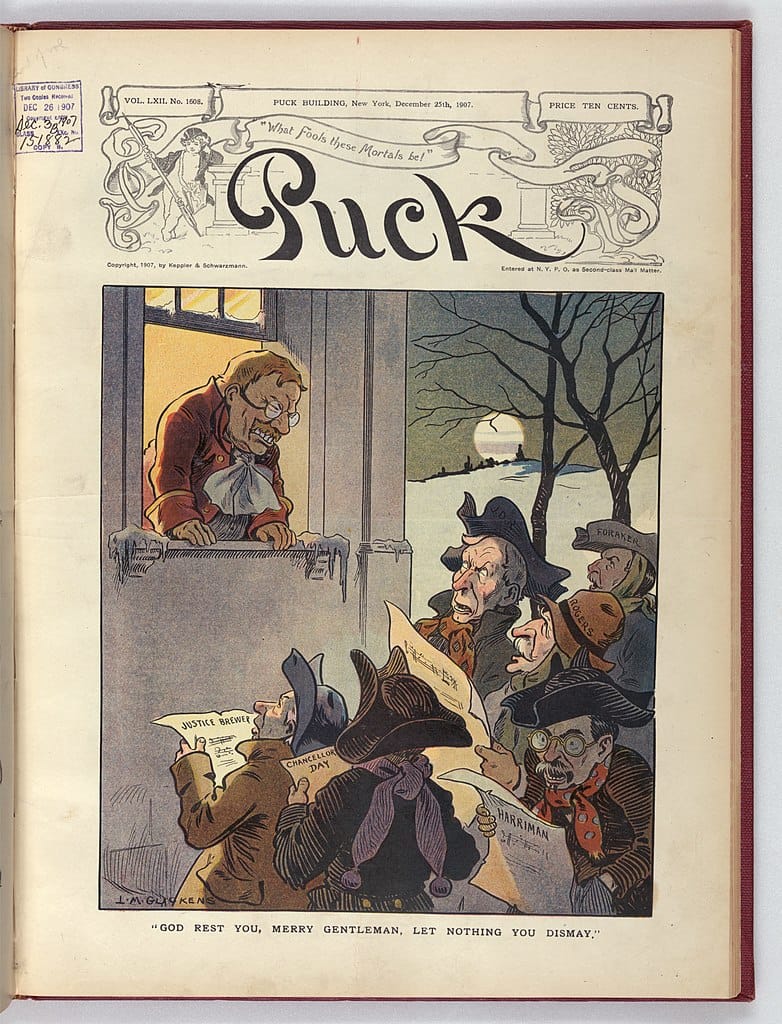merry / God rest you merry

Merry has a quite straightforward origin, although the title and first line of the Christmas carol God rest you merry, gentlemen is confusing to some. Merry comes from the Old English myrige, meaning pleasant or delightful. An example of the Old English can be found in Ælfric of Eynsham’s homily for the Sunday before Ash Wednesday:
Þeos woruld, þeah ðe heo myrige hwiltidum geðunt sy, nis heo hwæðere ðe geliccre ðære ecan worulde þe is sum cweartern leohtum dæge.
(This world, though it might sometimes seem merry, is more like the eternal world than a prison is like the light of day.)
When applied to people, the sense of being happy, especially when that happiness is fueled by alcohol, is in place by the latter half of the fourteenth century.
But the Christmas carol God Rest You Merry, Gentlemen is frequently misinterpreted, with merry assumed to be modifying gentlemen, and reading the phrase as merry gentlemen, may God [grant] you rest/peace. But that reading puts the comma in the wrong place and fails to recognize that here the verb to rest is transitive, meaning to make someone or something remain in the specified condition, in this case a state of merriment. So the carol’s opening line actually means gentlemen, may God keep you merry. The stock phrase rest you merry dates to late thirteenth century, when it appears in one version of the romance Floris and Blancheflour. From Cambridge, University Library MS Gg. 4.27.2, lines 157–58:
So him sede child Floriz
“Rest þe murie, sire Daris.”
And Shakespeare uses the formulation twice, “Rest you merrie” in Romeo and Juliet, 1.2, and “Rest you happy” in Antony and Cleopatra, 1.1. It appears in many other places, but the Christmas carol is probably the most well-known use of the phrase.
What prompted me to write this article about a very pedestrian word origin was a 2014 article in the Baton Rouge, Louisiana Advocate about a Southwestern Louisiana University professor who claimed that merry once had a meaning of strong or mighty, and that God rest you merry meant may God keep you strong, and that merrie old England actually meant mighty old England. This is completely wrong. Merry never meant mighty or strong, and I have no idea where this professor got that idea or if the belief is more widespread.
Sources:
Ælfric. “Quinquagesima.” The Old English Catholic Homilies, The First Series. Roy M. Liuzza, ed. Dumbarton Oaks Medieval Library 86, Cambridge: Harvard UP, 186.
Floris and Blancheflour. Cambridge, University Library MS Gg. 4.27.2.
Middle English Dictionary, 2024, miri(e, adj.
Oxford English Dictionary, third edition, September 2001, s.v. merry, adj., merry v., merry, adv.; March 2010, rest, v.1.
“SLU Professor Reveals History Behind Famous Carols.” The Advocate (Baton Rouge, Louisiana), 17 December 2014. NewsBank: Access World News—Historical and Current.
Image Credit: Louis M. Glackens, 1907. Library of Congress. Public domain image.